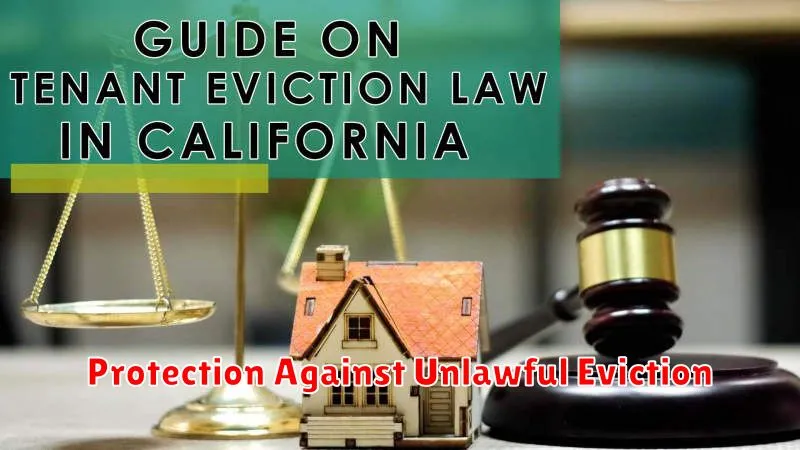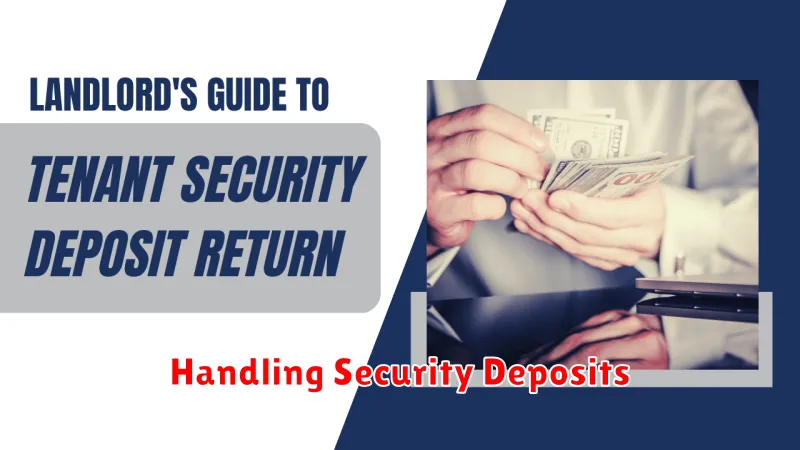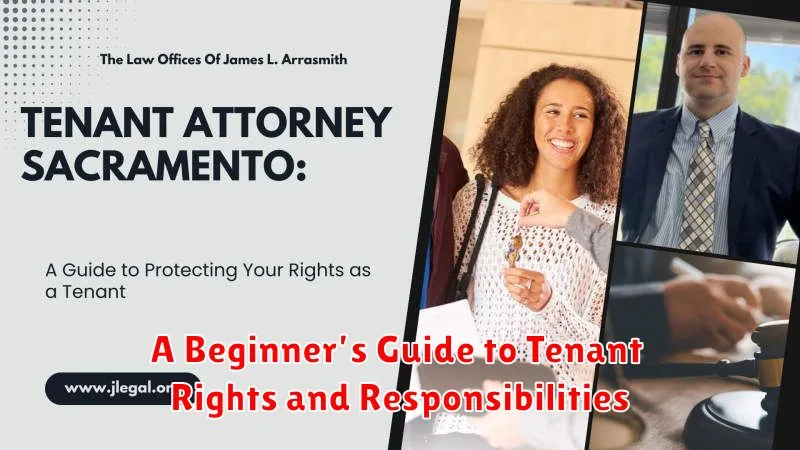Navigating the complexities of renting can be challenging, especially for first-time tenants. This beginner’s guide provides a clear and concise overview of both tenant rights and tenant responsibilities, empowering renters with the knowledge they need to confidently enter and maintain a successful tenancy. Understanding your rights as a tenant is crucial for ensuring fair treatment and a positive living experience. From lease agreements and security deposits to maintenance requests and eviction procedures, this guide will cover the essential information every renter should know.
This comprehensive guide will explore key areas of tenant rights, including the right to a habitable dwelling, quiet enjoyment of the property, and protection against unlawful discrimination. We will also delve into important tenant responsibilities such as paying rent on time, adhering to the terms of the lease, and maintaining the property in a reasonable condition. Whether you are a seasoned renter or just starting out, this guide will provide valuable insights to help you understand and navigate the landlord-tenant relationship effectively.
What Are Tenant Rights?
Tenant rights are legal protections afforded to renters by federal, state, and local laws. These rights ensure a safe and habitable living environment and protect tenants from unfair or discriminatory practices by landlords. Understanding your rights as a tenant is crucial for a positive renting experience.
Key tenant rights typically include the right to a habitable dwelling, quiet enjoyment of the property, protection against discrimination, and proper notice before eviction. Specific rights vary depending on jurisdiction, so it’s essential to research your local laws.
Understanding Lease Obligations
A lease is a legally binding contract between a landlord and a tenant. It outlines the terms and conditions of the rental agreement, including the rights and responsibilities of both parties. Understanding your lease obligations is crucial to a successful tenancy.
Your lease dictates the duration of your tenancy, the amount of rent due, and when and how it should be paid. It also details the permitted use of the property, any restrictions on pets or alterations, and the process for lease renewal or termination.
Careful review of your lease before signing is essential. Make sure you understand all the clauses and ask for clarification on anything that seems unclear. By adhering to the terms of your lease, you can avoid potential disputes and maintain a positive landlord-tenant relationship.
Right to a Habitable Home
One of your most important rights as a tenant is the right to a habitable dwelling. This is often referred to as the “implied warranty of habitability.” This means your landlord is legally required to maintain a living space that meets basic health and safety standards.
A habitable home generally includes:
- Functioning plumbing: This includes hot and cold running water, and working toilets and sinks.
- Heating and ventilation: Adequate heating during colder months and proper ventilation throughout the unit.
- Structural integrity: The building must be free from significant structural damage that could pose a safety hazard.
- Pest control: Landlords are often responsible for addressing infestations.
- Safety features: Working smoke detectors, and proper locks on doors and windows.
Protection Against Unlawful Eviction

Tenants have a right to be protected from unlawful eviction. An eviction is unlawful if it occurs before the landlord has followed the proper legal process. This typically involves providing appropriate written notice and obtaining a court order.
Self-help evictions, where a landlord attempts to remove a tenant without going through the court system (e.g., changing locks, shutting off utilities), are illegal. If a landlord attempts an unlawful eviction, tenants should document the actions and seek legal counsel.
Retaliatory evictions, where a landlord evicts a tenant for exercising their legal rights (e.g., requesting repairs, reporting code violations), are also illegal. Proof of a connection between the tenant’s actions and the eviction is crucial in these cases.
Requesting Repairs and Maintenance
As a tenant, you have the right to a safe and habitable living space. This includes having necessary repairs and maintenance performed in a timely manner. Always submit maintenance requests in writing, keeping a copy for your records. This provides documentation of your request and its timeline. Specify the issue clearly and concisely.
Your lease agreement should outline the proper procedure for requesting repairs. It likely specifies who to contact (landlord, property manager, etc.) and how (phone, email, online portal). Follow this procedure closely. Document every interaction, noting dates, times, and the individuals involved.
Understand your landlord’s reasonable timeframe for completing repairs. While emergencies require immediate attention, other repairs may allow for a more extended timeframe. Refer to your lease or local laws for specifics on reasonable response times.
Privacy and Entry Rules
As a tenant, you have a right to quiet enjoyment of your rented property. This means your landlord cannot enter your home without proper notice, except in emergencies. Landlords typically need to provide 24 to 48 hours’ notice before entering.
Valid reasons for entry include necessary repairs, routine inspections, or showing the property to prospective tenants or buyers. However, even with notice, entry should be during reasonable hours.
Your lease should outline specific entry procedures. If your landlord repeatedly violates your privacy rights, consult your local tenant laws for recourse. Document all instances of unauthorized entry.
Dealing with Noisy Neighbors
Noisy neighbors can disrupt your peace and quiet, making it difficult to enjoy your home. Communication is often the first step. Politely discuss the issue with your neighbor. They may be unaware of the disturbance they’re causing.
If direct communication doesn’t resolve the problem, review your lease agreement for noise-related clauses. Most leases outline quiet hours and acceptable noise levels. Document the dates and times of the disturbances. This documentation will be helpful if you need to involve your landlord or property manager.
Contact your landlord or property manager if the noise persists after you’ve attempted to resolve the issue yourself. They are responsible for enforcing the lease terms and maintaining a peaceful living environment for all tenants. As a last resort, if your landlord is unresponsive, you may consider contacting your local authorities for assistance.
Handling Security Deposits

A security deposit protects the landlord from potential damages or unpaid rent. Landlords must adhere to specific regulations regarding these deposits.
Key aspects of handling security deposits include:
- Limits: State laws often limit the maximum amount a landlord can request.
- Documentation: Landlords should provide a detailed, written account of the deposit’s purpose.
- Deductions: Landlords can deduct for damages beyond normal wear and tear, providing itemized documentation.
- Return: Landlords must return the deposit (or remaining balance) within a specified timeframe after lease termination.
Familiarize yourself with your state’s specific regulations regarding security deposits. Failure to comply with these laws can have serious consequences for landlords.
When to Contact a Legal Aid
Knowing your rights and responsibilities as a tenant is crucial. However, sometimes situations arise where you need professional legal advice. Contacting a legal aid organization can provide valuable support and guidance. Here are some instances where seeking legal aid is highly recommended:
Eviction: If you’re facing eviction, legal aid can help you understand your rights and potentially represent you in court. They can advise you on the legality of the eviction process and assist in negotiating with your landlord.
Discrimination: If you believe you’ve experienced discrimination based on protected characteristics like race, religion, or disability, contact legal aid. They can help determine if you have a valid claim and guide you through the necessary legal steps.
Lease Disputes: Disagreements with your landlord over lease terms or conditions often benefit from legal advice. Legal aid can clarify your rights and obligations under the lease agreement and help resolve the dispute.
Unsafe Living Conditions: If your landlord neglects essential repairs, creating unsafe living conditions, legal aid can advise you on your options and potentially take action against the landlord to enforce necessary repairs.
Resources for More Information
Knowing your rights and responsibilities as a tenant is crucial. For further assistance and information specific to your location, consult the resources below.
Government Agencies
Your local or state housing authority can provide information on specific regulations and tenant protections in your area. Consumer protection agencies can offer assistance with landlord-tenant disputes and legal advice.
Non-profit Organizations
Many non-profit organizations specialize in tenant advocacy and legal aid. They can provide resources, advice, and support for tenants facing various housing challenges. Seek out organizations in your community offering these services.

